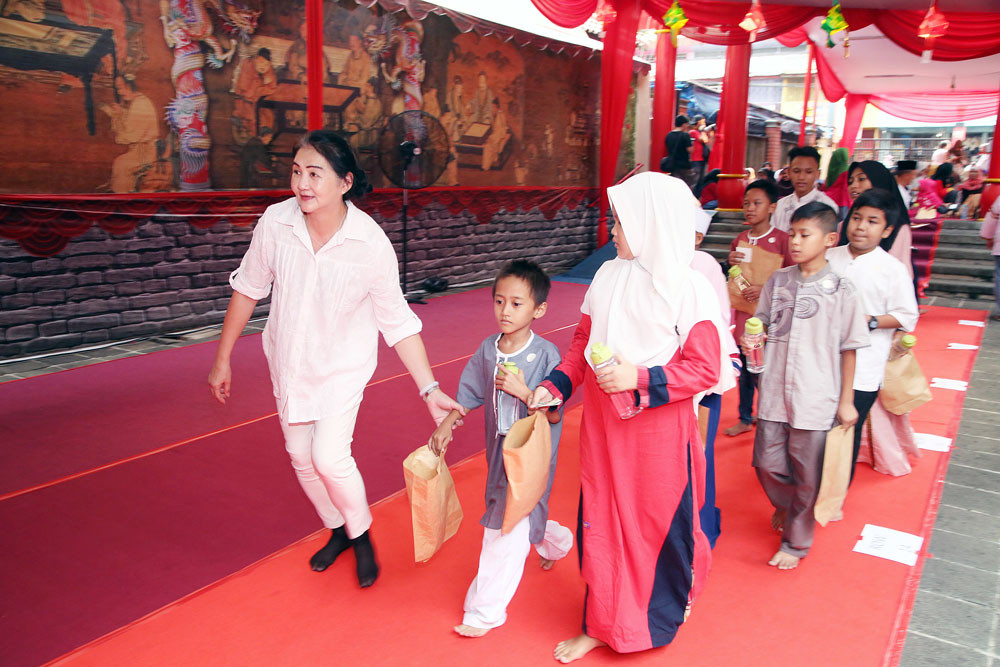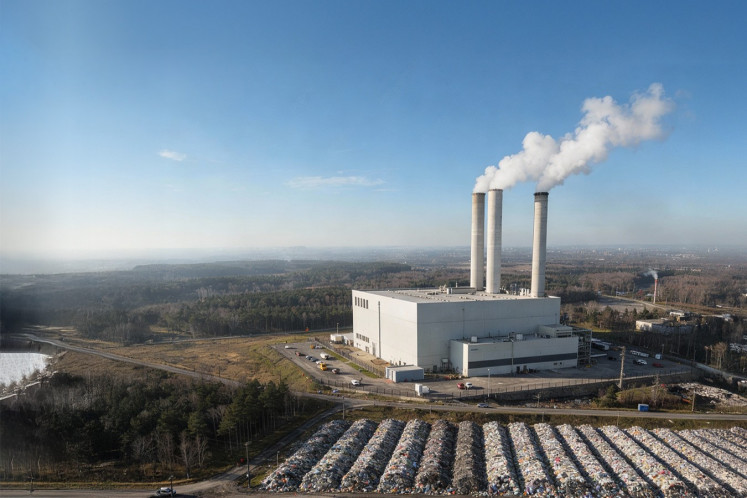Popular Reads
Top Results
Can't find what you're looking for?
View all search resultsPopular Reads
Top Results
Can't find what you're looking for?
View all search resultsWinning optimism in wake of growing division
For many, the “ideology of hatred and intolerance” is not compatible with their sense of connectivity across nations stemming from the force of globalization.
Change text size
Gift Premium Articles
to Anyone
O
n the eve of the New Year, my family and friends got together. As we sat around the dinner table, we shared highlights of the year as well as expectations for the coming year.
We, individuals from various backgrounds, all listened attentively to comments made. Each one of us carried unique perspectives: a housewife who sits on the board of an early childhood education institution, a former analyst of a state-owned bank, a lecturer who is passionate about politics and millennials savvy in social media and always current on the latest updates.
Looking back at Indonesia in 2019, we all agreed that the process leading to the April election had somewhat dented amicable relations among friends. Issues raised during the campaign season were often divisive and pitted friends against each other.
Social media was the vehicle of choice for fanning misunderstanding. Some WhatsApp groups even prohibited political discussions lest it destroy the group’s unity.
In today’s Indonesia, where state censorship is taboo, we agreed that social media practitioners must remain critical in facing the flood of misinformation — if not disinformation. They must be able to unpack the news through critical thinking.
We also shared our misgivings about the way identity politics was played out during the electoral campaign. It threatened the natural fabric of pluralistic Indonesia. Investment in good character from early childhood is therefore urgent, even though it will only yield dividends later in life in the form of embracing inclusivity and differences.
As the night grew older, issues on the international front for 2019 and the global outlook for 2020 were on the table. I said that broadly speaking, there were some resemblances between sociopolitical development in Indonesia and what has transpired at the global scene in 2019.
International relations were marked by growing distrust and division among states. On the one hand, the world continues to face challenges such as development gaps, arms control, climate change control through mitigation and adaptation and health for all. On the other hand, the world also faces polarization based on ideological divides between democracy and authoritarian system. Trade wars, choice of next generation technology and artificial intelligence (AI), including the rollout of the Fifth Generation mobile network (5G) and sources for financing infrastructure developments were all emanating from this differing ideological stand point.
The reintroduction of competing terms of ally against foe in today’s global political discourse is somewhat alarming. The precursor of two world wars in the 20th century was the division between “us” and “them”.
Such competition and the continuous swing in relations as in the tensions between the United States and China created uneasiness among states.
As Singapore’s Prime Minister Lee Hsien Loong put it in 2017 before his departure to the White House, his country does not wish to “pick sides”.
The politics of identity that promotes hatred against a particular group is on the rise. The blossoming of far-right groups that promote close-knit and exclusive association based on skin color and creed is worrisome.
Seemingly, they share a parochial view about the world, which has unfortunately gained traction across nations.
An example of this is the mass shooting of Muslim worshipers in a mosque in Christchurch, New Zealand, in March 2019. The perpetrator fits the profile of a far-right individual, allergic to inclusivity and perverted by his anti-immigration dogma.
For many, the “ideology of hatred and intolerance” is not compatible with their sense of connectivity across nations stemming from the force of globalization. Thanks to the advancement of information technology, they can exchange ideas with friends in different corners of the world and form enriched ideas. They, therefore, become parts of a borderless production chain within which trust and confidence are central for a better result.
One example of a borderless production chain is in the creative industry, namely a collaboration between Dublin-based company Brown Bag and an Indonesian firm in Bali to produce an animation program.
On many occasions, Foreign Minister Retno LP Marsudi, including recently during the 12th Bali Democracy Forum, made a special reference to inclusivity and in this case, the importance of an inclusive democracy.
One of the central tenets of the ASEAN Outlook on the Indo-Pacific is inclusivity. Indonesia believes that prosperity in the Indo-Pacific region is tenable when countries in the region and beyond subscribe to the primacy of inclusivity and cooperation.
As an open region, the Indo-Pacific welcomes collaboration based on trust and confidence; not on a patron-client relationship or with the propensity to a particular system of governance, a characteristic of the Cold-War. It will be a win-win situation for major economies willing to finance infrastructure development or other types of assistance and to do so based on the viability of the projects.
In the context of trust-building and peace maintenance in Southeast Asia, ASEAN and China continue to engage in developing norms or a Code of Conduct in the South China Sea.
While negotiations are taking place, any country — big or small — is to respect international law, such as not to encroach in the disputed seas. Peace and stability in the region can only be achieved through predictability in relations.
Through its foreign policy and diplomacy in 2019, Indonesia has contributed to world peace, stability and prosperity. And Indonesia will continue to follow this path in 2020.
At this point, just as the fireworks go off in the first seconds of the New Year, one of my guests interrupted and said that what I had shared seemed to be a utopia. In my defense, I said, a diplomat is an optimist. I am optimistic that Indonesians will be more inclusive and more willing to accept differences. I am also optimistic that the global community of nations will be able to develop more inclusive cooperation.
___________
Adviser to Indonesian foreign minister for political and security affairs and former Indonesian ambassador to Canada.










